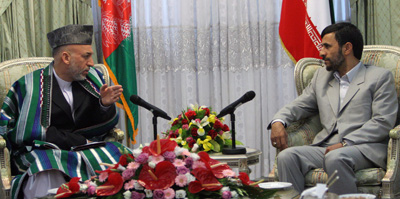New York, July 29, 2010—The Committee to Protect Journalists calls on the Afghan government to allow privately owned Emroaz TV back on the air, after its owner said it was shut down under pressure from Iran. According to local and international media reports, the station went dark on Tuesday almost immediately after the station’s owner, Member of Parliament Najib Kabuli, protested on-air the government’s order to shut the station down. In his address, Kabuli said the Ministry of Information had made a “one-sided decision” under Iran’s influence to silence Emroaz.
“We condemn the closure of Emroaz TV and call on the government to allow it back on the air,” said Bob Dietz, CPJ’s Asia program coordinator. “Closing Emroaz TV is a step in the wrong direction for Afghan media and sets a very dangerous precedent.”
Emroaz (“Today” in Dari) also had a reputation for youth-oriented programming and had attracted criticism from conservative Islamic leaders who were critical of what they considered un-Islamic behavior, according to news reports. Their program “Afghan Model” paralleled foreign reality TV shows, and was considered particularly egregious.
Afghan media reported that Kabuli has accused the Iranian ambassador in Kabul of pressuring President Hamid Karzai to close the station. Kabuli told the BBC that, on Tuesday, “the complaints commission send me a letter and the first complaint filed against me is by the Iranian ambassador.”
The BBC quoted Abdul Hakim Hashir, head of the government’s media office, as denying that the pressure had come from any foreign country. “To create religious division or to create religious problems is against the constitution of Afghanistan. That is why the council of ministers have banned the station,” Hashir told the BBC.
Kabuli told the BBC that he had not been questioned about the closure, and was not allowed to present his arguments for allowing the station to remain on air.
There are more than 20 privately owned television stations broadcasting in Afghanistan, and almost all are owned by powerful political leaders or wealthy businessmen. Some Afghan journalists have told CPJ that they consider many to be “warlord TV stations,” airing openly partisan viewpoints. According to CPJ research, this is the first TV station to be ordered closed by the Karzai government.
